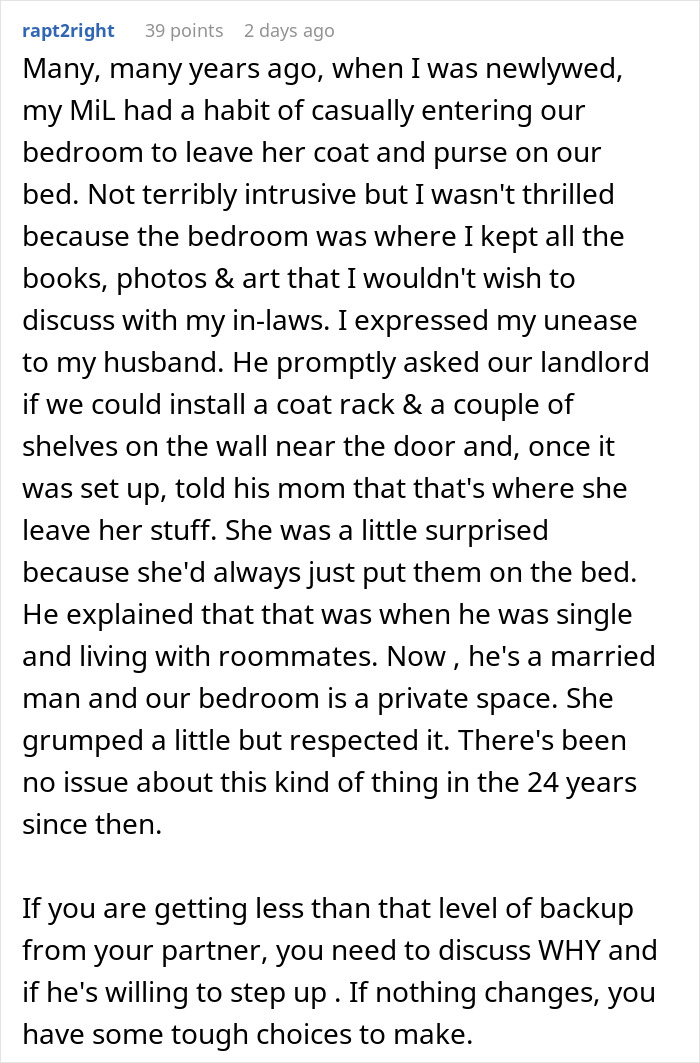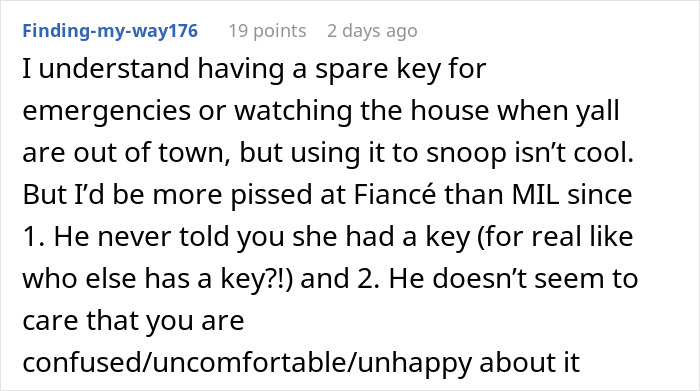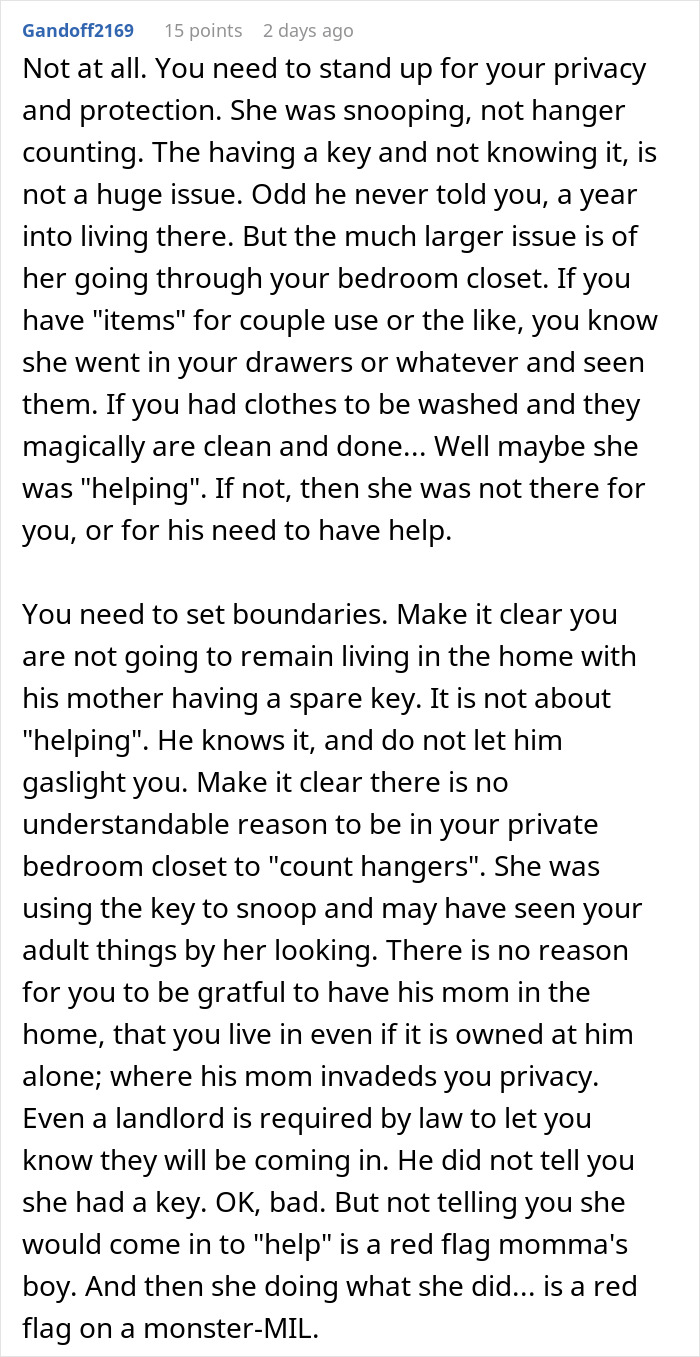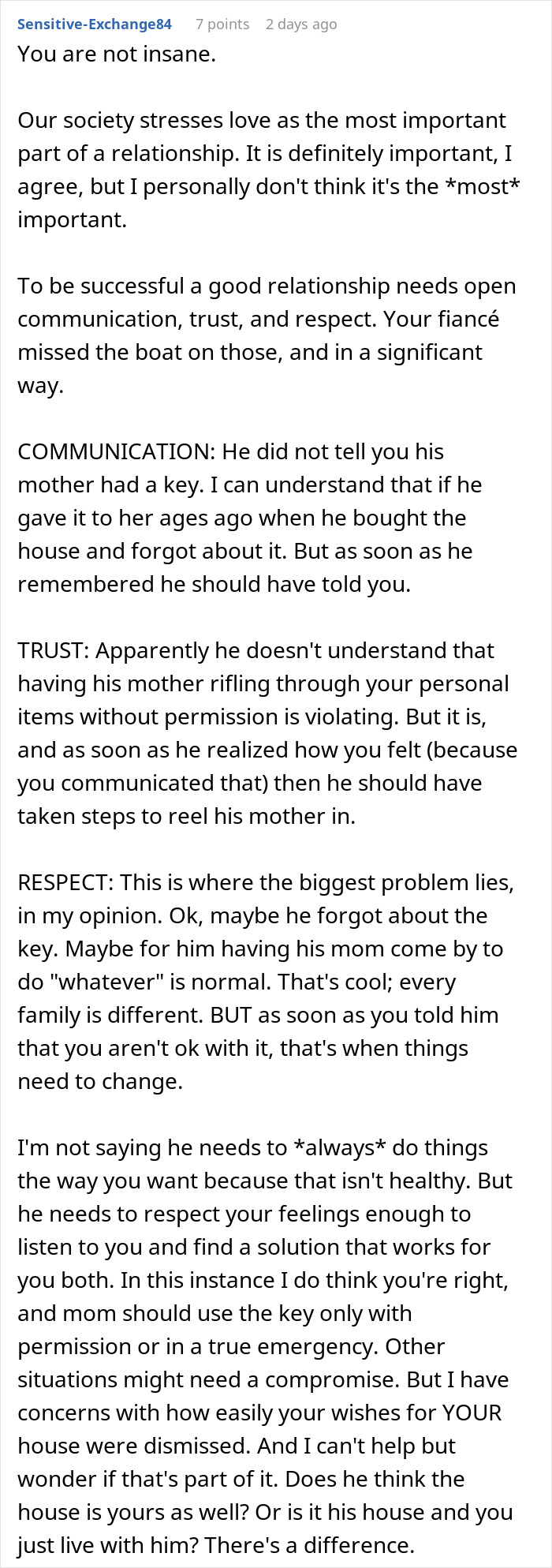Boundaries should keep relationships healthy, but sometimes even a well-meaning relative can forget that doors have locks for a reason.
In this post from r/TwoHotTakes, Reddit user Liftg9vt shares how her cozy life with her fiancé turned uncomfortable the moment she discovered her future mother-in-law was rifling through her closet. The twist? The lady didn’t just wander off while visiting them—she did it secretly, when nobody was home.
This has left Liftg9vt wondering how to put a stop to it before wedding vows turn into an open invitation for even bigger invasions of privacy.
When somebody gives you a spare key to their house, it doesn’t mean that you can enter whenever you want

Image credits: EyeEm (not the actual image)
But apparently not everyone understands this





Image credits: drobotdean (not the actual image)


Image credits: liftg9vt
Different people have a different understanding of how close in-laws are supposed to be
Some people who commented on the story were quick to suggest ultimatums or even breaking up as possible solutions to the conflict. However, the woman may actually have been acting in favor of the relationship, not against it—she might simply have a different understanding of her role in the family.
LuAnn Oliver, a couples therapist in Washington, D.C., notes that “in some family systems, an in-law is warmly welcomed as somewhat of an equal … In other systems, the in-law might be in more of a secondary role to the original family member.”
So, it’s important to be mindful of the circumstances before escalating the tension.
Oliver suggests these questions to help partners understand each other’s family systems:
- How did your partner and their family navigate family relationships before you came along?
- What role does your partner play in their immediate family?
- What are the family’s patterns of communication?
The therapist also recommends identifying boundaries that will help you and your partner grow closer together and co-create your own family unit, one where you’re on the same page about what works for you both.
Points worth considering include how much time you’ll spend with each family and how you’ll spend it, what constitutes overstepping, and any rules around children. There may not be clear right or wrong answers, ultimately, the husband and wife get to decide what’s best for them.
Ignoring these issues won’t lead to anything good. A study of 371 black and white couples over their first 16 years of marriage found that those who disagreed about how close they were to their in-laws were more likely to divorce than those who agreed on their boundaries.

Image credits: freepik (not the actual image)
People had plenty of reactions to the woman’s story and shared what they’d do in her shoes








































